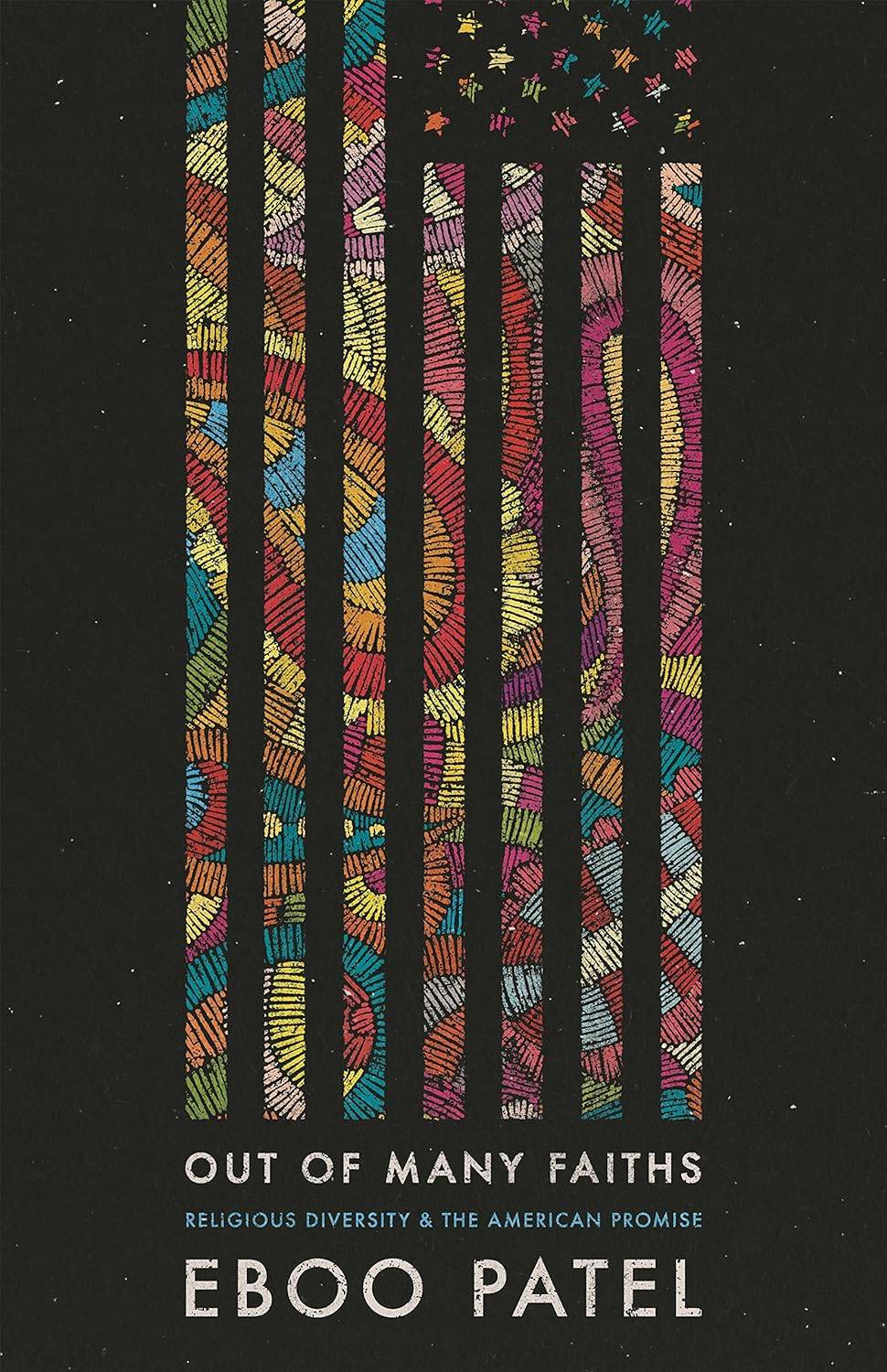Interfaith Insight - 2023
Permanent link for Facing the challenge of religious diversity (2019) by Douglas Kindschi, Sylvia and Richard Kaufman Founding Director, Kaufman Interfaith Institute, GVSU on December 5, 2023
“We are the most religiously devout nation in the West, and the most religiously diverse country in the world, at a time of religious tension, conflict, and crisis.”
So writes Eboo Patel, founder and president of the Interfaith Youth Core, in his recent book, Religious Diversity and the American Promise . He continues, “How do we affirm and extend the ethic that welcoming religiously diverse people, nurturing positive relations among them, and facilitating their contributions to the nation is part of the definition of America? Responding to that question is the task of this book.”
Patel, who was one of our keynote speakers last November (2018) at the triennial Jewish-Christian-Muslim Dialogue, begins his book by pointing out that political theorists have long observed that diversity and democracy have not mixed well historically. But the United States has been the “great exception” in the way our founders “set for themselves the remarkable task of building a religiously diverse democracy, an experiment never before tried at such a scale in human history.”
While the founders, many of whom were slaveholders, did not represent much diversity in gender and race, they did “create a constitutional system that protected freedom of religion, barred the federal government from establishing a single church, prevented religious tests for those running for political office, and penned more than a few poetic lines about building a religiously diverse democracy.”
Patel then continues by recounting George Washington’s letter to Jewish leader Moses Seixas, affirming their welcome as full members of this new nation. Benjamin Franklin made financial contributions to every diverse community that built a house of worship in Philadelphia, and even raised money for a hall in Philadelphia “expressly for the use of any preacher of any religious persuasion who might desire to say something.” Franklin was explicit in stating that it would be open to Muslim preachers.
Thomas Jefferson drafted the Virginia Statute for Religious Freedom in 1777, which became the basis for Article 1 of the Bill of Rights, stating, “Congress shall make no law respecting an establishment of religion, or prohibiting the free exercise thereof.”
The Treaty of Peace and Friendship between the United States and Tripoli was signed by President John Adams and approved unanimously by the Senate in 1797. It made clear that the United States was a secular state and had no “enmity” against any Muslim nation and further stated,“it is declared by the parties that no pretext arising from religious opinions shall ever produce an interruption of the harmony.”
Patel also discusses the historic challenges to religious diversity at times when Jews, Catholics and Mormons were persecuted and not fully accepted. While we have moved beyond those conflicts, we now see members of these groups represented in Congress, the Supreme Court and the highest offices in our nation.
Patel also celebrates the contribution of religious communities to the overall welfare and social capital of our country. The vibrancy of our civil life is in a significant way dependent on the generosity and contributions of religious groups. He then urges that we “guard against religious preference … and continue the American ideal of free exercise for all faith communities.” We also need to welcome the contributions from these communities, facilitate positive relations between diverse religious communities, guarding against conflict and strengthening social cohesion.”
The task, however, is not easy and there are challenges ahead. Patel discusses the real differences between religions and their truth claims. The idea that all religions are pretty much the same and all paths are leading up the same mountain is called “pretend pluralism.” There are doctrines, rituals, and practices that counter other religions and can even insult. He writes:
“How are non-Jews supposed to view the idea that Jews are God’s chosen people, non-Christians meant to countenance the concept that you must hold to the Christian belief that Jesus is Lord and Savior in order to go to heaven, or non-Muslims to reckon with the idea that Muslims have the final revelation and others are incomplete or corrupted?”
These are real differences, and our interfaith activity urges a “thick dialogue” that seeks understanding and respect rather than a “thin dialogue” that reduces our various beliefs to some kind of bland agreement. Furthermore, to assert that all paths are going up the same mountain implies that we have a “God’s-eye view” that somehow lets us see from above the mountain and make assertions that only God could conclude. We are each on our own path with a limited view. To assume we can affirm or deny the path that someone else in on is a kind of arrogance that is dangerous. We can firmly believe that we are on the right path and still maintain a humility about judging what others believe.
We must always be on guard against thinking we know God’s intents. After all, God chose Abraham before there existed Jewish, Christian, Muslim, or other religious structures. We must be careful not to put limits on God’s ability and actions in dealing with his creatures.
Patel defines “pluralism as an ethic that has three main parts: respect for different identities, relationships between diverse communities, and a commitment to the common good.” He puts special emphasis on developing “meaningful relationships between people from different religious communities.” This was the focus of the Year of Interfaith Friendship that the Kaufman Interfaith Institute initiated in 2018.


